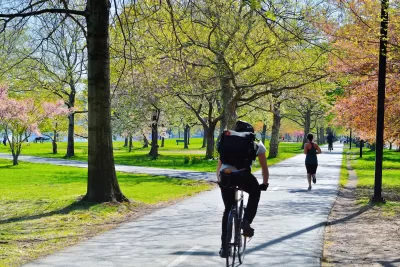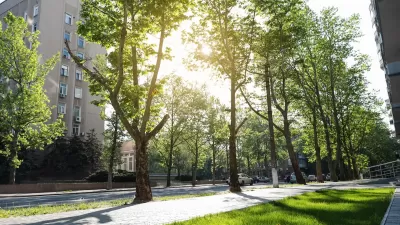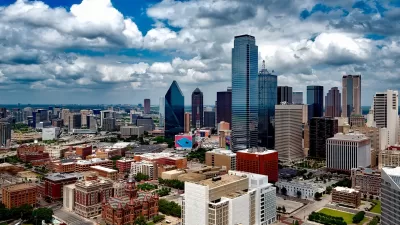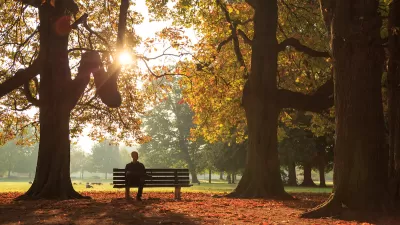Urban trees are essential for cooling public spaces, promoting physical activity, and protecting vulnerable populations from extreme heat.

As climate change intensifies, record-breaking heat has become a leading public health threat, not only by causing direct heat-related deaths but also by discouraging outdoor physical activity. The rising temperatures make parks, streets, and recreational spaces dangerously hot, posing risks to those who rely on these areas for exercise and leisure. Maintaining physical activity is crucial for both physical and mental health, yet the increasing heat threatens to reduce the number of people engaging in outdoor activities, particularly in urban areas where shade is scarce.
As Nadina Galle and Jad Daley share in this article, urban trees offer a powerful solution to this problem by providing natural cooling through shade and evapotranspiration, which can lower temperatures by up to 45 degrees Fahrenheit. By strategically planting trees in key recreational areas, cities can create cooler, more comfortable environments that encourage safe outdoor activity even during extreme heat. Initiatives like Phoenix's “Cool Corridors” demonstrate how targeted tree planting can address both environmental and social equity, ensuring that all neighborhoods have access to the cooling benefits of trees.
In addition to promoting active lifestyles, trees play a critical role in protecting vulnerable populations, such as children and the elderly, from the dangers of extreme heat. Shaded public spaces allow for safer outdoor activities, reducing the reliance on air conditioning, which many cannot afford. With growing investments in urban forestry, such as the $1.5 billion from the Inflation Reduction Act, expanding tree cover in disadvantaged neighborhoods is essential for creating heat-resilient communities and safeguarding public health in a warming world.
FULL STORY: How trees can help keep us healthy and active in hot weather

Planetizen Federal Action Tracker
A weekly monitor of how Trump’s orders and actions are impacting planners and planning in America.

Congressman Proposes Bill to Rename DC Metro “Trump Train”
The Make Autorail Great Again Act would withhold federal funding to the system until the Washington Metropolitan Area Transit Authority (WMATA), rebrands as the Washington Metropolitan Authority for Greater Access (WMAGA).

The Simple Legislative Tool Transforming Vacant Downtowns
In California, Michigan and Georgia, an easy win is bringing dollars — and delight — back to city centers.

The States Losing Rural Delivery Rooms at an Alarming Pace
In some states, as few as 9% of rural hospitals still deliver babies. As a result, rising pre-term births, no adequate pre-term care and "harrowing" close calls are a growing reality.

The Small South Asian Republic Going all in on EVs
Thanks to one simple policy change less than five years ago, 65% of new cars in this Himalayan country are now electric.

DC Backpedals on Bike Lane Protection, Swaps Barriers for Paint
Citing aesthetic concerns, the city is removing the concrete barriers and flexposts that once separated Arizona Avenue cyclists from motor vehicles.
Urban Design for Planners 1: Software Tools
This six-course series explores essential urban design concepts using open source software and equips planners with the tools they need to participate fully in the urban design process.
Planning for Universal Design
Learn the tools for implementing Universal Design in planning regulations.
Smith Gee Studio
City of Charlotte
City of Camden Redevelopment Agency
City of Astoria
Transportation Research & Education Center (TREC) at Portland State University
US High Speed Rail Association
City of Camden Redevelopment Agency
Municipality of Princeton (NJ)





























